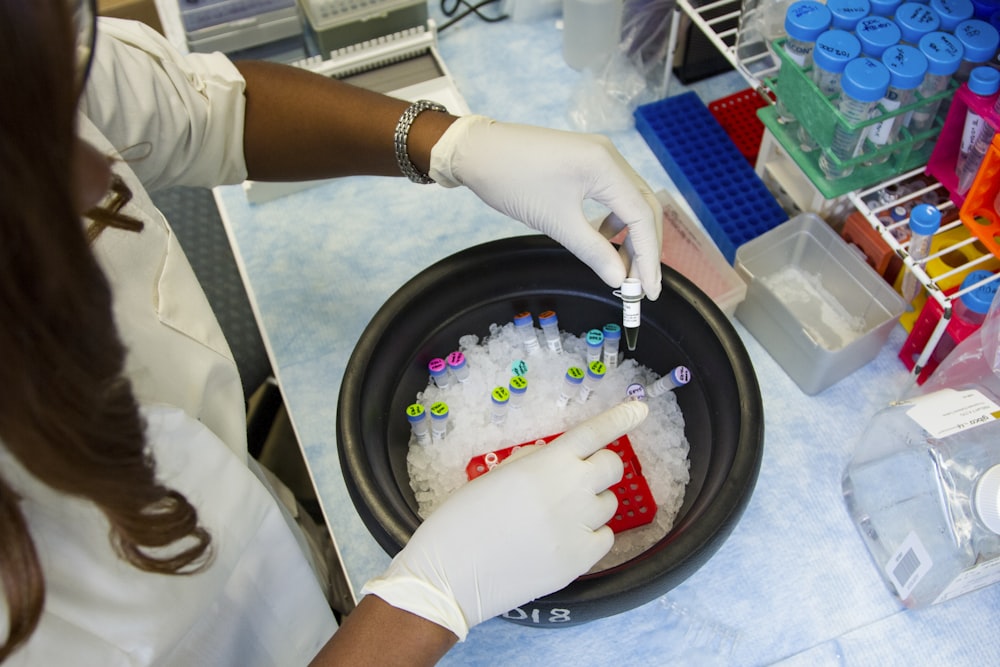Week In Review: Sanofi Acquires Kadmon, A US-China Pharma, For $1.9 Billion
Image Source: Unsplash
Deals and Financings
- France's Sanofi (SNY) will acquire Kadmon Holdings (KDMN) of New York City in a $1.9 billion deal (see story). In 2019, Kadmon formed a JV with BioNova Pharma to develop its novel lead drug, Rezurock (belumosudil) in China. One month ago, Kadmon was approved to launch Rezurock in the US as a third-line treatment for graft-versus-host disease. Sanofi said it would begin commercializing the drug as part of its GVHD portfolio. Kadmon was also supported by at least one China-connected VC, Vivo Ventures.
- Frontage Shanghai, a division of US-China CRO Frontage Holdings (1521.HK), acquired a 70% stake in Wuhan Heyan Biomedical Technology, a discovery CRO (see story). Heyan offers target-based in vitro pharmacodynamic screening and early pharmacological evaluation services for biologic drug discovery. Its technical services include screening of drug targets, customized biological assay development, and detection services. Frontage, which is majority owned by Hangzhou's TigerMed (3347.HK), offers drug evaluation, product development/CMC, and clinical services.
- Bio-Thera Solutions (688177.SS) out-licensed US, EU, and Canadian commercial rights for its Avastin biosimilar to Sandoz. Sandoz will also have rights in most other countries not already assigned. In 2020, Bio-Thera filed BLAs for BAT1706 in these countries, plus China. Financial details of the agreement were not disclosed but, last year, Bio-Thera out-licensed China rights for the candidate to BeiGene (BGNE) in a $165 million deal. It also out-licensed emerging market rights to India's Cipla. Bio-Thera is headquartered in Guangzhou.
- Huadong Medicine (000963.SZ) entered a co-development partnership with Insilico Medicine, a Hong Kong AI drug discovery company (see story). The two companies will work together to develop small-molecule therapeutics in oncology. Huadong will use its drug discovery and screening platform, while Insilico will contribute its end-to-end AI-driven drug discovery platform, including its small molecule generation platform, Chemistry42, to design and screen for potential first-in-class drug molecules with improved druggability. The teams plan to interfere with protein-protein interactions to hit undruggable targets that regulate tumor growth.
COVID-19 Pandemic
- Brii Biosciences (2137.HK) of Beijing committed an additional $100 million for global regulatory filings and commercialization of its SARS-CoV-2 combination therapy (see story). BRII-196/BRII-198 is a neutralizing monoclonal antibody combination therapy. In a Phase III trial, interim results showed a statistically significant reduction of 78% in hospitalization/death among high risk, non-hospitalized COVID-19 patients. The results showed efficacy in all variants of the disease. The company will also expand manufacturing and establish partnerships to deliver the therapy globally.
- Chengdu Clover Biopharma received a manufacturing permit for its S-Trimer COVID-19 vaccine candidate at its Changxing facility (see story). Clover is currently testing the vaccine in a global pivotal Phase II/III trial as a combination of the SCB-2019 antigen and two adjuvants. Clover plans to submit for conditional approval of SCB-2019 in China and the EU, plus WHO, with a launch as early as year-end 2021. At peak capacity, the Changxing facility will be able to produce more than one billion doses of antigen per year.
- Sinovac Biotech (SVA) reported that a third dose of its inactivated SARS-CoV-2 vaccine improved the protection of CoronaVac® by 60%, including protection from the Delta variant (see story). The third dose was administered six months after the second shot, when the efficacy of the vaccine was already in decline. CoronaVac® was approved by WHO under emergency rules. Sinovac said the study provides a "theoretical basis" for a third dose of the vaccine, implying more studies would be required before regulatory approval.
Trials and Approvals
- JW Therapeutics (2126.HK), a Shanghai CAR-T company, was approved to launch its anti-CD-19 CAR-T to treat large B-cell lymphoma in China (see story). Relmacabtagene autoleucel injection (relma-cel) was approved as a third-line therapy for adult patients with relapsed or refractory LBCL. Relma-cel is the first China developed CAR-T product approved for China use and the sixth approved CAR-T product globally. It will be marketed under the trade name Carteyva®. JW is a joint venture of Juno Therapeutics (now a Bristol Myers Squibb company) and WuXi AppTec.
Disclosure: None
Comments
Please wait...
Comment posted successfully.
No Thumbs up yet!




